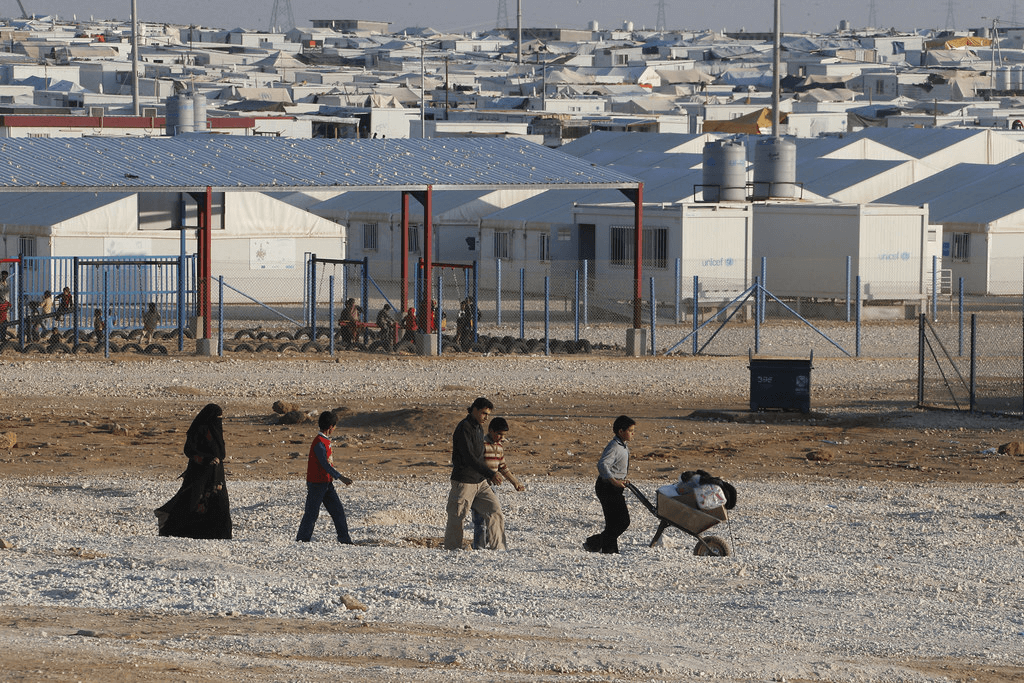Western governments are being called upon to repatriate nationals who are in detention camps in Northeast Syria. An open letter signed by over 200 academics urges Western governments to take responsibility for their citizens and end the deprivation of citizenship of European nationals.
Syria’s al-Hol and al-Roj camps hold over 65,000 people who have faced devastation from ongoing fighting in Syria or Iraq. Within this, approximately 3,000 women and 7,000 children are foreign nationals, and an additional 2,000 men are detained in prisons among suspected IS fighters, according to Kurdish authorities.
So far only a few countries, including Russia, Kazakhstan, Kosovo, and Bosnia-Herzegovina, have repatriated their own nationals. The US has also repatriated the last of 27 American citizens known to have been held in Kurdish custody in Syria, some of whom have been charged with terrorism-related offenses upon their return to the US.
Countries who have rejected calls to do the same, most notably Britain, Germany, Canada, and Australia, face increased pressure as the Covid-19 threat causes greater risk of death within the camps. More than 500 people, of which a significant amount were children, died last year in al-Hol camp. Now, with a lack of medical care, cramped conditions and poor sanitation creating prime conditions for the spread of the virus, the risk of death is even higher. Kurdish authorities are unable to cope with providing medical care, food and supplies to people in the camps.
Child Separation
IOHR’s #BringUKChildrenHome campaign has been monitoring the issue. At least 60 children, almost all under aged 12, are born to UK nationals. Many suffer physically from malnourishment and limited access to food and water, as well as mentally from Post-Traumatic Stress Disorder (PTSD). There is no formal education, with children as old as aged nine unable to read and write. At age 12, children are separated from their mothers in the camps, and face the threat of radicalisation. In 2019, the UK government repatriated three orphans, however many children remain in the camps with their mothers.
The governments of France and Belgium have only allowed repatriation for unaccompanied children. Enforcing separation violates the UN Convention of the Rights of the Child and the European Convention on Human Rights, which protects the right of a child to be with their parents. The recent open letter from over 200 academics criticise this, stating that,
“By refusing to address this question, Europe is not only outsourcing this responsibility onto others, but also putting at risk the lives of hundreds of innocent children”.
The Belgian government is appealing a Brussels court ruling issued last year, that ordered the repatriation of ten children born in Syria to Belgian ISIS fighters. The government is fined 5,000 euros per child for each day that it fails to provide them with assistance. The spokesperson for the Belgian families said that if the Belgian government’s appeal is upheld, they would look at taking the case to the European Court of Human Rights (ECHR).
Citizenship Challenges
The UK government faced backlash over the citizenship appeal of Shamima Begum, a UK national, who fled to Syria at age 15 to join ISIS but requested to return last year with her baby. Begum was stripped of her citizenship, effectively rendering her stateless as she was unable to claim citizenship from Bangladesh on the grounds of her heritage. Earlier this year, the Court of Appeal ruled that Begum should be allowed to return to the UK to pursue an appeal, however the government is due to challenge this in the Supreme Court next month.
Begum is one of many European nationals in Syria stripped of their citizenship. The issue was divisive and controversial, with some arguing that had she been allowed to return earlier, her child may not have died in the camps, but others arguing that her association with ISIS should bar her return to the UK. The open letter by academics takes the position that European nationals in Syria deserve the right to a fair and equitable trial in European courts.
A similar decision is being made in a current case at the ECHR against the French government, brought by the parents of a French woman with children being held in the camps.
Two United Nations special rapporteurs said that the case brought the opportunity for judges to “set international best practices for compliance with human rights standards”, and also promoted the urgent repatriation of all foreign nationals as the “only international law-compliant response”.
Call to Action
Governments must take action to repatriate European nationals, prioritising repatriation of children with their primary caregivers. Children should be provided with effective psychological support and mothers with the facilities for rehabilitation.
See IOHR’s campaign #BringUKChildrenHome #BringUKChildrenHome and webinar discussion on the role the media plays in repatriating nationals from Syria:

